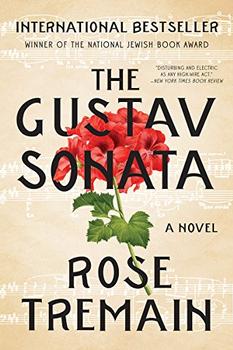Summary | Excerpt | Reviews | Beyond the book | Read-Alikes | Genres & Themes | Author Bio

The Undertaking is one of those rare books: a debut novel that completely lives up to its billing.
Magee's story is set in World War II Germany and is concerned with the marriage of two young people: Peter, an ordinary German with ambitions to be a teacher, but now a serving infantryman on the Eastern Front, and Katherina, a woman he has never met. In an unconventional but historically accurate ceremony, the two are married to each other's photographs even though they are thousands of miles apart. By marrying, Peter gains leave to visit his new wife in Berlin and Katherina has the certainty of a pension should her new husband die in the war. Despite these unromantic beginnings, passion flares between them but their time together is short. After a brief visit to Berlin, Peter returns to Russia and the Battle of Stalingrad, while Katherina remains with her parents as the tide of war changes and the German march for world domination starts to falter.
The Undertaking sets itself apart from many other World War II novels in several ways but principally in Magee's decision to imagine the experience of war from the point of view of two Germans. Peter and Katherina are ordinary and far from infallible German people simply trying to live and love in a world of horror. In their private story within this much written-about period, their actions are not heroic - Peter and Katherina both believe in the Nazi regime and act accordingly - but they are strikingly believable and sympathetic. There is no turning away from the horrors of Nazism and the Holocaust here – instead Magee explores how normal people came to participate in such atrocities.
The dual narratives of Peter and Katherina's experiences are interwoven with their love letters to each other, adding to the dramatic pull of the narrative. Peter and his fellow soldiers face an impossible struggle to stay alive and keep their faith in the government that has sent them to fight in dire conditions and extreme physical privation. In contrast, Katherina and her parents appear to be blessed with the support of the party and become successful, if anxious, social climbers. But when Katherina's brother is sent home from fighting on health grounds the limits of their influence and favor are put to the test.
The Undertaking is also a remarkable piece of writing. Throughout, Magee's language is both unflinching and spare. Similarly to Pat Barker in her World War I novels, Magee's descriptions are stripped of metaphor and simile and her dialogue is crisp and vivid whether she is writing an argument between Katherina and her deluded parents or between Peter and his fellow soldiers freezing in the Russian snow.
Moreover, this is one of those rare historical novels that wears its research so lightly that the reader can forget that this is a story set in the past and simply move into the scenes and lives of its characters. The historical backdrop is present and acknowledged where it affects the life of these two individuals, but there is no exposition or authorial intrusion to explain to the reader how the Eastern Front came about or how the Nazi Party embarked upon the genocide of the Jews. Katherina's wedding ring may be taken from a Jewess being rounded up and sent to a concentration camp, but there is no editorializing or moralizing offered. Magee, formerly a war journalist, successfully reports events and doesn't tell the reader how to react or interpret what is happening.
Without such interventions, and also because of Magee's sharp language choices and heavy use of dialogue, this is a novel with great pace and narrative drive. Sometimes disturbing, often unsettling, and occasionally hopeful, it's a fast and fascinating read.
![]() This review was originally published in The BookBrowse Review in November 2014, and has been updated for the
October 2015 edition.
Click here to go to this issue.
This review was originally published in The BookBrowse Review in November 2014, and has been updated for the
October 2015 edition.
Click here to go to this issue.

If you liked The Undertaking, try these:

by Rose Tremain
Published 2017
A breathtakingly radiant story of an unlikely childhood friendship that survives the test of time.

by Anthony Doerr
Published 2017
A stunningly ambitious and beautiful novel about a blind French girl and a German boy whose paths collide in occupied France as both try to survive the devastation of World War II. Winner of the 2014 BookBrowse Award for Fiction.
Your guide toexceptional books
BookBrowse seeks out and recommends the best in contemporary fiction and nonfiction—books that not only engage and entertain but also deepen our understanding of ourselves and the world around us.